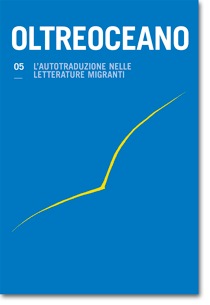Messicani per scelta o ispanografi per vocazione? Il caso di Carlo Coccioli, Fabio Morabito, Francesca Gargallo e Marco Perilli
Keywords:
lengua, exilio, emancipación, identidad, escritores migrantesAbstract
È indubbio che la scelta di quattro scrittori italiani trasferitisi in Messico di sostituire lo spagnolo alla lingua materna risponda a forti motivazioni affettivo psicologiche, ma nemmeno in questo caso sarebbe congruo tentare una generalizzazione. Oggi adottare la lingua del paese di emigrazione, esilio o trasferimento professionale non dipenda più da una condizione di lento e inesorabile oblio, ma da una non sempre dichiarata esigenza di libertà, che si manifesta in un’emancipazione da vincoli territoriali razziali e identitari. Tale impulso interiore accomuna Carlo Coccioli a Francesca Gargallo, a Marco Perilli e a Fabio Morabito
Mexicans by Choice – Hispanographones by Vocation
No doubt that the choice of four Italian writers living in Mexico to substitute Spanish to their mother tongue responds to strong psychological motivations, but not even in this case generalizations would be congruous. To adopt the language of the country of emigration, exile or professional exigence, is nowadays no sign of slow, inexorable oblivion, but ratather of a not always declared sense of freedom, rendered manifest by an emancipation from territorial, racial, identitary bonds, such as is evident in authors like Carlo Coccioli, Francesca Gargallo, Marco Perilli and Fabio Morabito.
Downloads
References
Bajini, I. (2009): Una siciliana chichimeca frente a la modernidad. Conversación con Francesca Gargallo. Altre modernità, 1, pp. 89-94.
Bianciotti, H. (1999): Le Pas si lent de l’amour. Paris: Gallimard.
Castillo García, G. S. (2006): La autotraducción como mediación entre culturas. Alcalá de Henares: Universidad de Alcala de Henares.
Cocco, S. (2005): The House on the Lagoon / La casa de la laguna di Rosario Ferré: tra riscrittura e autotraduzione, Sassari. Magnum.
Cocco, S. (2009): Lost in (Self-)Translation? Riflessioni sull’autotraduzione. Annali dell’Università degli Studi di Sassari. Lost in Translation. Testi e culture allo specchio, 6, pp. 103-118.
Ferré, R. (1998): Puerto Rico, USA. El Nuevo Dia, (23 de marzo 1998). Recuperato da http://www.sololiteratura. com/fer/ferpueroricousaesp.htm
Gargallo, F. (2010): Nunca he obedecido mandatos. In S. Serafin et al. (Eds.): Más allá del umbral. Autoras hispanoamericanas y el oficio de la escritura (pp. 294-305). Sevilla: Renacimiento.
Gibilisco, T. (2007): Adaptación y cambio de género en la versión norteamericana de la obra de María Luisa Bombal. Studi di Letteratura ispano-americana, 37-38, pp. 75-85.
Martinetto, V. (2006): Extranjera para sí misma: diálogo entre identidad y creación en Flores deun solo día de Anna Kazumi Stahl. Artifara - Revista de lenguas y literaturas ibéricas y latinoamericanas, 6, s/p.
Mercuri, V. (2006, 15 dicembre): Tondelli, Coccioli e Santacroce. Un insolito triangolo letterario. Seminario Tondelli, sesta edizione, Correggio, Palazzo dei Principi, 15 dicembre 2006. Recuperato da http://tondelli.comune.correggio. re.it/database/correggio/tondelli.nsf/4cde79c085bc5503c125684d0047d9a0/bfafa1feb9c22c4fc12572df004b310d/$FILE/Intervento%20Valentina%20Mercuri.PDF
Mercuri, V. (2009): Autotraducción, libertad de autor y mediación cultural: el caso del italiano Carlo Coccioli. Quaderns: revista de traducció, 16, pp. 135-142.
Morabito, F. (2005): Poesie. S. Strazzabosco (Trad.). Trento: AUIEO.
Nord, C. (2000): Translating as a Purposeful Activity. Manchester: Saint Jerome Publishing.
Ollín, T. & Moctezuma, Q. (2002): La importancia del estilo. Entrevista a Fabio Morabito. Babab, 14, s/p. www.babab.com/no14/morabito.htm
Perassi, E. (2001): Omeyotl: il diario messicano di Carlo Coccioli. In G. Bellini & D. Ferro (Eds.): L’acqua era d’oro sotto i ponti. Studi di Iberistica che gli amici offrono a Manuel Simões (pp. 225-234). Roma. Bulzoni.
Perilli, M. & Strazzabosco, S. (2010): Una voce si sente soltanto se è ferita. Intervista con Fabio Morabito. Poesia, 245, pp. 36-39.
Quimera. Revista de literatura (2002): Speciale dedicato a La autotraducción: historia, teoría y práctica, 210.
Santos Menezes, A. (2006): Sangue de amor correspondido vs Sangre de amor corrrespondido. Analise de um caso emblematico entre o PB e o E. São Paulo: Universidade de São Paulo. Recuperato dawww.teses.usp.br/teses/.../TESE_ANDREIA_SANTOS_MENEZES.pdf
Downloads
Published
How to Cite
Issue
Section
License

This work is licensed under a Creative Commons Attribution-NonCommercial-ShareAlike 4.0 International License.
The authors undertake to comply with the following conditions, which are considered accepted at the time of submission of their contributions.
The sending of a text implies that it is unpublished and not submitted to be published elsewhere.
1. If accepted, the author shall confer on the publisher the right to publish and distribute it both in paper form and in the online electronic edition. The published articles will be downloadable and made available in open access.
2. Provided that it correctly indicates that the first publication took place in the journal Oltreoceano. Rivista sulle migrazioni the author has the right to: a) reproduce the article in separate extracts or collected in a volume; b) publish the article on their personal website or teaching site provided that these sites are of a non-commercial nature; c) deposit the article in online archives of a non-commercial nature, linked to the institution they belong to or as part of projects for the non-commercial dissemination and open access of scientific works.
The use of contributions by third parties, for commercial or otherwise unauthorized purposes, is not allowed. The publisher declines all responsibility for the unauthorized use of the material published in the journal.












